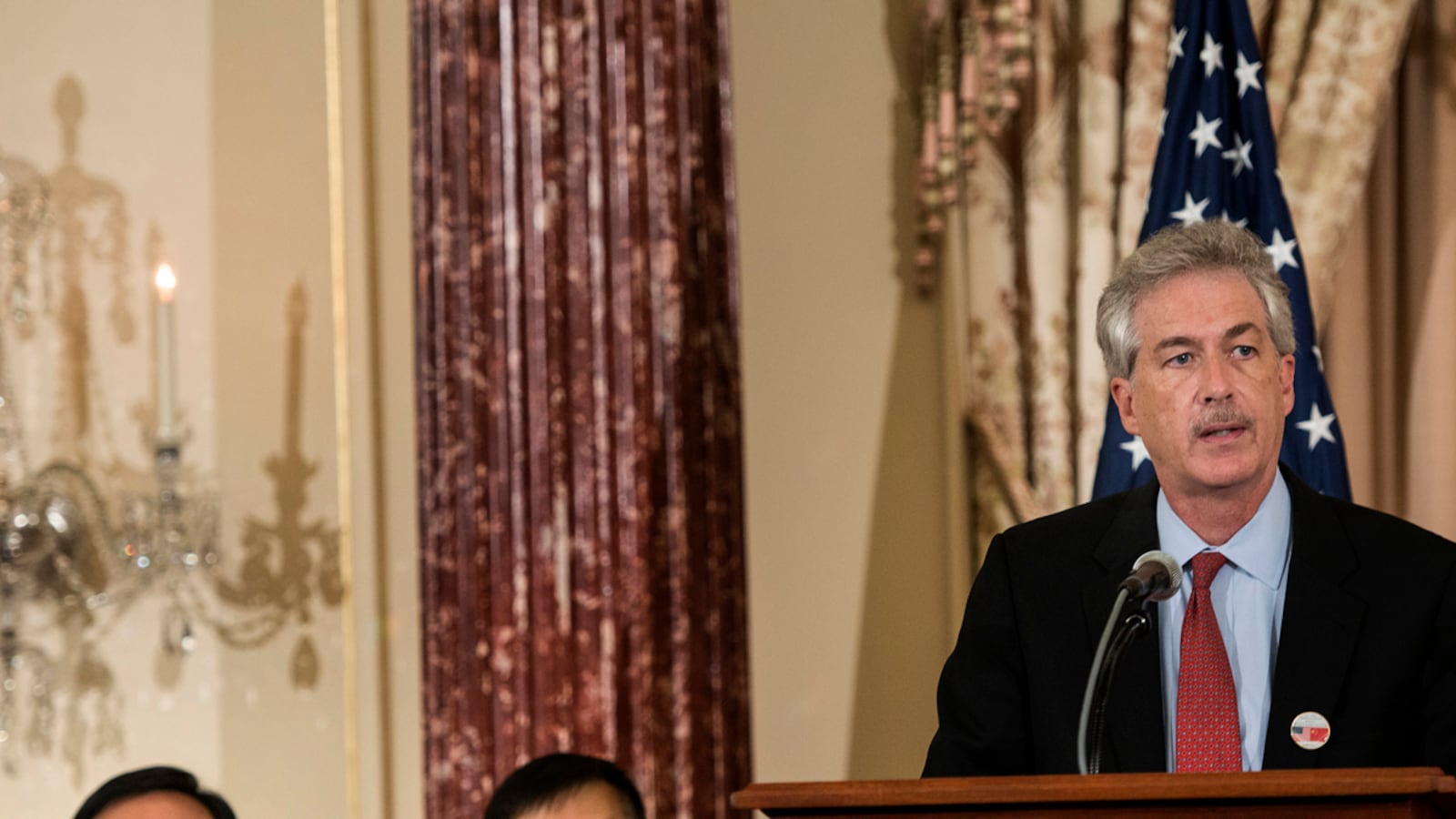Hundreds of U.S. and Chinese officials met for two days in Washington last week but couldn’t come to terms over who was responsible for NSA leaker Edward Snowden’s departure from Hong Kong late last month.

The U.S. dispute with the government of Hong Kong over Snowden, who was allowed to board a flight to Moscow in late June despite a provisional arrest request issued by the U.S. Justice Department, has never been resolved. Hong Kong officials claimed that the U.S. government failed to respond to requests for additional information and identified Snowden’s middle name as “Joseph,” not James. But U.S. officials have said repeatedly the request was valid on its face and should have been honored.
At a July 12 press conference with senior U.S. and Chinese government officials, Deputy Secretary of State Bill Burns criticized Beijing, as well as Hong Kong, for letting Snowden go to Russia, where he still sits in an airport transit terminal weighing various Latin American asylum offers.
“When we encounter differences or sensitive issues, we need to address them directly in consultation with one another. And that is why we were very disappointed with how the authorities in Beijing and Hong Kong handled the Snowden case, which undermined our effort to build the trust needed to manage difficult issues,” said Burns. “Over the past two days, we made clear that China’s handling of this case was not consistent with the spirit of Sunnylands or with the type of relationship – the new model – that we both seek to build.”
Burns was referring to the Sunnylands resort in California where President Barack Obama and Chinese President Xi Jinping held their first official summit in early June, just as the Snowden leaks began to come out.
Chinese State Councilor Yang Jiechi directly disputed Burn’s accusation that Beijing was involved in the decision to let Snowden leave Hong Kong. He also defended the actions of the government of the Hong Kong Special Administrative Region (SAR) with regards to the case.
“With regard to the Snowden case, the central government of China has always respected the Hong Kong SAR government’s handling of cases in accordance with law. The Hong Kong SAR government has handled the Snowden case in accordance with law, and its approach is beyond reproach,” he said. “Others should respect this, and I believe China and the United States have sufficient wisdom to tap the potential of cooperation between the two sides. We hope and believe the two sides have the wisdom to manage well our differences.”
The meetings in Washington also included the first official meeting of a U.S.-China bilateral working group on cyber crime. Yang said cyber hacking in the U.S.-China relationship is no longer an issue solely for China to address.
“The Chinese side pointed out that China is a victim of hacking attacks. China’s view is that the relevant international cyber rules should be developed by the U.N. to help uphold cyber security in all countries,” he said.
Burns also lectured his Chinese counterparts on human rights. The State Department downgraded China last month in its annual report on human trafficking, placing China on the same tier as Cuba, North Korea, and Zimbabwe.
“During the course of the dialogue, we also expressed our ongoing concerns about human rights in China, particularly recent instability in Tibetan and Uighur areas of China. The goal of this conversation is to emphasize the importance of human rights to the bilateral relationship,” said Burns. “We firmly believe that respect for universal rights and fundamental freedoms will make China more peaceful, more prosperous, and ultimately more secure.”






